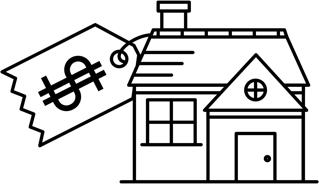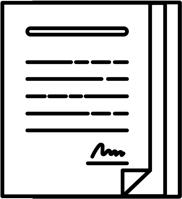House



If you’re debating whether you want to sell right now, it might be because you have some unanswered questions. Here’s some information that can help.

If you own a home already, you may be tempted to wait because you don’t want to sell and take on a higher mortgage rate on your next house. But your move may be a lot more feasible than you think, and that’s because of how much your house has likely grown in value.
Think about it. Do you know a neighbor who’s sold their house recently? If so, did you hear what it sold for? With how much home values have gone up in recent years, the number may surprise you.
According to Lawrence Yun, Chief Economist at the National Association of Realtors (NAR), the typical homeowner has gained $147,000 in housing wealth in the last five years alone. That’s significant. And when you sell, that increase in value can give you what you need to fund your next move.
If this is on your mind, it’s probably because you remember just how hard it was to find a home over the past few years. But in today’s market, it isn’t as challenging.
Data from Realtor.com shows how much inventory has increased – it's up over 30% compared to last year (see graph).
Even though inventory is still below normal, it’s improved a lot in the past year. And the best part is, experts say it’ll grow another 10-15% in 2025
That means you have more options for your move – and the greatest chance in years to find a home you love.
The Supply of Homes for Sale Is Growing, but Still Below the Numbers Seen in More Normal Years
Percent Change in Inventory Year-Over-Year vs. Pre-Pandemic (2017–2019)
Source: Realtor.com
And last, if you’re worried no one’s buying with rates and prices where they are right now, here’s some perspective that can help. While there weren’t as many home sales last year as there’d be in a normal market, roughly 4.06 million homes still sold (not including new construction), according to NAR. And it’s expected that number will rise this year. But even if we only match how many homes sold last year, here’s what that looks like.
• 4.06 million homes ÷ 365 days in a year = 11,123 homes sell each day
• 11,123 homes ÷ 24 hours in a day = 463 homes sell per hour
• 463 homes ÷ 60 minutes = 7.7 homes sell every minute
Think about that. Just in the time it took you to read this, 8 homes sold. Let this reassure you – the market isn’t at a standstill. Every day, thousands of people buy, and they're looking for homes like yours.
If you want to talk more about these questions or need more information about what’s happening in our area, reach out.



Deciding whether to sell your house depends on your personal circumstances and the specific dynamics of the market in your area. If you need to sell now . . . an experienced local agent can guide you through the process.

Talk about the economy is all over the news, and the odds of a recession are rising this year. That’s leaving a lot of people wondering what it means for the value of their home – and their buying power. Let’s take a look at some historical data to show what’s happened in the housing market during each recession, going all the way back to the 1980s. The facts may surprise you.

Many people think that if a recession hits, home prices will fall like they did in 2008. But that was an exception, not the rule. It was the only time the market saw such a steep drop in prices. And it hasn’t happened since, mainly because inventory is still so low overall. Even in markets where the number of homes for sale has started to rise this year, inventory is still far below the oversupply of homes that led up to the housing crash.
In fact, according to data from Cotality (formerly CoreLogic), in four of the last six recessions, home prices actually went up ( see graph below):
Home Price Change During the Last 6 Recessions
So, don’t assume a recession will lead to a significant drop in home values. The data simply doesn’t support that idea. Instead, home prices usually follow whatever trajectory they’re already on. And right now, in most places home prices are still rising, just at a slower pace.
While home prices tend to stay on their current path, mortgage rates usually drop during economic slowdowns. Again, looking at data from the last six recessions, mortgage rates fell each time ( see graph below):
While home prices tend to stay on their current path, mortgage rates usually drop during economic slowdowns. Again, looking at data from the last six recessions, mortgage rates fell each time ( see graph below):
Mortgage Rate Changes During the Last 6 Recessions
Mortgage Rate Changes During the Last 6 Recessions
So, a recession means rates could decline. And while that would help with your buying power, don’t expect the return of a 3% rate.
So, a recession means rates could decline. And while that would help with your buying power, don’t expect the return of a 3% rate.
The answer to the recession question is still unknown, but the odds have gone up. However, that doesn’t mean you have to worry about what it means for the housing market – or the value of your home. Historical data tells us what usually happens.
The answer to the recession question is still unknown, but the odds have gone up. However, that doesn’t mean you have to worry about what it means for the housing market – or the value of your home. Historical data tells us what usually happens.



Building equity in your house is one of the biggest financial advantages of homeownership. And right now, homeowners across the country are sitting on near record amounts of it.
Here’s a look at how that equity could be a game changer for you, and why it’ll flip your perspective from “Why would I move right now?” to “Why wouldn’t I?”
Home equity is the difference between how much your house is worth and how much you still owe on your mortgage. For example, if your house is valued at $400,000 and you only owe $200,000 on your mortgage, your equity would be $200,000.
Recent data from the Census and ATTOM shows how significant today’s home equity really is. In fact, more than two-thirds of homeowners have either completely paid off their mortgages (shown in green in the chart below) or have at least 50% equity in their homes (shown in blue in the chart below):
Over 2/3 of Americans Have Paid Off Their Mortgage or Have at Least 50% Equity
Mortgaged Homes with > 50% Equity
Mortgaged Homes with < 50% Equity
Owns the Home Free and Clear
Sources: Census, ATTOM Data
That’s a big deal. Think about it: 2 out of every 3 homeowners have at least 50% equity in their homes. To put a more tangible number on it, Cotality (formerly CoreLogic) says the average homeowner with a mortgage has over $311,000 in equity. That kind of net worth can go a long way if you’re trying to make a move.
That’s part of the reason why the share of all -cash buyers recently reached a new high. According to an annual report from the National Association of Realtors (NAR), 26% of buyers were able to buy without a mortgage (see graph below):
Imagine buying your next house in cash. No mortgage. No monthly payment. No interest rate to mess with. If you want to find out how much equity you have to see if that’s an option for you, connect with a real estate agent and ask for a professional equity assessment report (PEAR).
Who knows, you may find out you have enough equity to buy your next place outright – and with today’s mortgage rates, not having to take out a home loan is pretty incredible. Even if you don’t have enough equity to buy in all cash, you may still have enough to make a larger down payment, which has its own benefits, too.
Homeowners have an extraordinary amount of equity today – and that’s why the share of allcash buyers is on the rise. To see how much equity you have and talk through how it can help fuel your next move, let’s connect.

This isn’t the same market it was just a few years ago. Things have become more balanced. But not all sellers realize that and that’s leading some to make costly mistakes.
Here are the 3 most common missteps and how an agent can help you avoid each one.
According to a survey by John Burns Real Estate Consulting (JBREC) and Keeping Current Matters (KCM), agents agree the #1 thing homeowners struggle is setting the right price for their house (see graph below). Without an agent’s help, they usually set their price too high.
58% of Agents Say Sellers Have the Most Trouble Setting the Right Price in Today’s Market
Top Issues Sellers Find Most Challenging in Today’s Market
Setting the right price
Here are the most common reasons sellers make this mistake:
• They’re not paying attention to current market conditions
• They’re pricing based on what they want to make – not what someone would really pay for it
• They’re trying to leave wiggle room for negotiation
You don’t want to fall into this same trap. If you shoot too high, you’ll push buyers away. That means you’ll have to lower your price to try to draw buyers back in. And you could actually end up walking away with lower offers than if you’d priced it right from the start. The best way to avoid that happening to you?
Lean on you agent to find the price that draws buyers in, not pushes them away.
Another common mistake is trying to avoid doing work on your house. That leaky faucet or squeaky door might not bother you, but to buyers, small maintenance issues can be red flags. They may assume those little flaws are signs of bigger problems – and it could cost you when offers come in lower or buyers ask for concessions. As Investopedia says:
“Sellers who do not clean and stage their homes throw money down the drain. . . Failing to do these things can reduce your sales price and may also prevent you from getting a sale at all. If you haven’t attended to minor issues, such as a broken doorknob or dripping faucet, a potential buyer may wonder whether the house has larger, costlier issues that haven’t been addressed either.”
The solution? Work with your agent to prioritize anything you’ll need to tackle before the photographer comes in. These minor upgrades can pay off big when it’s time to sell.
Buyers today are feeling the pinch of high home prices and mortgage rates. With affordability so tight, they may come in with an offer that’s lower than you want to see. Don’t take it personally. Instead, focus on the end goal: selling your house. Your agent can help you negotiate confidently without letting emotions cloud your judgment.
At the same time, with more homes on the market, buyers have options – and with that comes more negotiating power. They may ask for repairs, closing cost assistance, or other concessions. Be prepared to have these conversations. Again, lean on your agent to guide you. Sometimes a small compromise can seal the deal without derailing your bottom line. As U.S. News Real Estate explains:
“If you’ve received an offer for your house that isn’t quite what you’d hoped it would be, expect to negotiate . . . the only way to come to a successful deal is to make sure the buyer also feels like he or she benefits . . . consider offering to cover some of the buyer’s closing costs or agree to a credit for a minor repair the inspector found.”
Notice anything? For each of these mistakes, partnering with an agent helps prevent them from happening in the first place. That makes trying to sell your house without an agent’s help the biggest mistake of all.
Avoid these common mistakes by starting with the right plan – and the right agent. Let’s connect so you don’t fall into any of these traps.
As you get ready to sell your house, add these items to your todo list. A real estate professional will also provide other helpful tips based on your specific situation.
Make It Inviting

Open blinds or curtains to let the light in

Check lightbulbs and replace as needed

Take down personal photos or items

Declutter throughout

Give every room a clear purpose

Clean your vents and baseboards

Vacuum, mop, or sweep floors

Fix anything that’s broken

Organize countertops, cabinets, and closets

Touch up any scuffs on the walls

Power wash outdoor surfaces

Wash the windows (inside and out)

Tidy up the landscaping

Freshen up your entry

Sweep patios, decks, and walkways
Putting your house for sale on your own – often called “For Sale by Owner” or FSBO – might be on your mind. But you should know that it gets complicated very quickly, especially in today’s complex market.

That’s why data from the National Association of Realtors (NAR) shows a record low number are going the route of selling on their own ( see graph below):
The Percent of Homeowners Selling Without an Agent Has Hit an All -Time Low
Source: NAR
Instead, more and more homeowners are choosing to work with a real estate agent. And here’s why partnering with an expert is the go-to choice.
One of the biggest hurdles when selling a house on your own is figuring out the right price. It’s not as simple as picking a number that sounds good – you need to hit the bullseye. Price your home too high, and buyers may overlook your listing. Price it too low, and you could leave money on the table or even raise red flags about the condition of your home.
Real estate agents are experts at finding the right price for today’s market trends. As Zillow explains:
“Agents are pros when it comes to pricing properties and have their finger on the pulse of your local market. They understand current buying trends and can provide insight into how your home compares to others for sale nearby.”
With their knowledge of the local market, buyer behavior, and what homes like yours are selling for, an agent will help you make sure you set a price that’s competitive and will draw in buyers. And it’s that perfectly strategic price that’ll set the stage for selling at top dollar.
Another part of the process is dealing with a growing stack of paperwork, from disclosure forms to contracts. Each document needs to be completed accurately, and there are legal requirements to follow that can feel overwhelming if you’re not familiar with them.
This is another area where an agent’s expertise really shines. They’ve handled these documents countless times and know exactly what’s needed to keep everything on track. Your agent will guide you through the paperwork step by step, making sure it’s done right the first time. With their help, you can avoid unnecessary mistakes that can lead to delays, legal complications, and more.
You don’t want to take all of this on by yourself. Let’s connect so you have a pro to help with everything from pricing your home to managing the details.


We’re well-versed in the housing market and know the ins and outs of the entire process.

We help you understand today’s real estate values when setting the price of a listing or making an offer to purchase your next home.

We have effective marketing tools and networks to attract more buyers.

We simply and effectively explain today’s market conditions and what they mean for you.

We help with all the disclosures and documents necessary in today’s heavily regulated environment.

We act as a buffer in negotiations with all parties throughout the entire transaction.


The complexities of the current conditions mean that, now more than ever, it’s smart to lean on the guidance of an experienced local real estate agent. If you want to enter the housing market in 2025, whether as a buyer or a seller, let a pro lead the way for you.



Do
Do
BATTLE CREEK (B)
15150 S. Helmer Road
Battle Creek, MI 49015
Office: 704-1000
Fax: 704-1001
Toll Free: 855-869-2236
414 MILHAM (414)
414 W. Milham Avenue
Portage, MI 49024
Office: 381-7653
Fax: 381-6410
Toll Free: 800-959-0759
328 MILHAM (328)
328 W. Milham Avenue


MUSKEGON
1141 E Sherman Blvd
Norton Shores, MI 49444
Office: (231) 903-4427
Fax: (616) 257-9578
PLAINWELL (P)
302 S. Main Street
Plainwell, MI 49080
Office: 685-6858
Fax: 685-9912
Toll Free: 888-631-3200
Portage, MI 49024
Office: 216-4222
Fax: 459-6296
Toll Free: 800-843-6443

DRAKE (D)
221 S. Drake Road
Kalamazoo, MI 49009
Office: 341-4300
Fax: 567-7710

Do
RICHLAND (R)
12374 East D Avenue
Richland, MI 49083
Office: 629-5612
Fax: 629-5776
Toll Free: 800-466-3908
SAUGATUCK/DOUGLAS (SD)
202 W. Center St., P.O. Box 997
Douglas, MI 49406
Office: 857-8030
Do you have questions about something you read here or about buying a home in general? Don't hesitate to reach out.

Toll Free: 888-379-7711
GRAND RAPIDS (G)
202 44th Street SW

Fax: 857-4140
Toll Free: 888-764-2836
SOUTH HAVEN (SH)
Whether it's housing market related, or something about your specific situation, I've helped other buyers find success - and I can help you too.
Grand Rapids, MI 49548
Office: 616-369-1991
Fax: 616-257-9578


HASTINGS (H)
221 W State Street
Hastings, MI 49058
Office: 224-5227
Fax: 704-1001
Toll Free: 855-869-2236
GRAND HAVEN
218 Beacon Boulevard
Grand Haven, MI 49417
Office: 616-772-5007
Fax: 704-1001



513 Broadway Street
South Haven, MI 49090
Office: 637-6537
Fax: 637-9037
Toll Free: 888-764-2836
ST. JOSEPH (J) 4233 Red Arrow Highway
Stevensville, MI 49127
Office: 983-8051
Fax: 983-8041
SILVER LAKE
8310 W Hazel Road
Mears, MI 49436
Office: 231-943-6192
Fax: 983-8041

